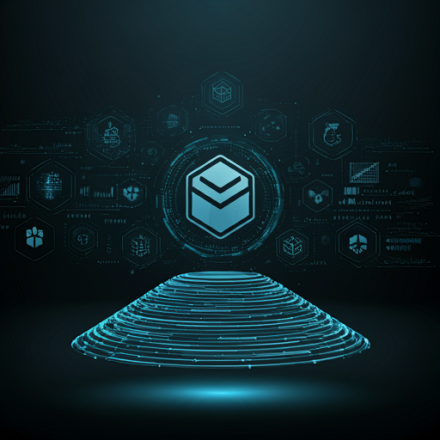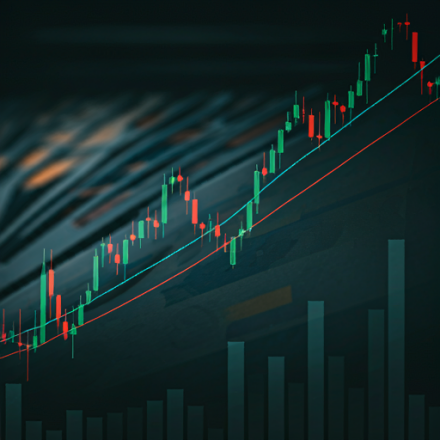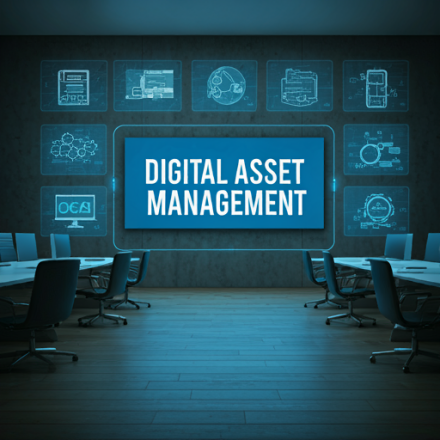There is a rapid change in the financial world in last decade. Blockchains and decentralized technologies are the major technical domains behind this rapid change. Amongst the most thrilling developments in this space are Decentralized Autonomous Organizations or DAOs for short. They have brought the means by which a participant owns a stake in shared decision-making, investments, and community-building via governance with blockchain. Let's discuss how DAOs work, their financial empowerment potential and how to get started with them.
What Does DAO Stand For?
The Decentralized Autonomous Organization, popularly called the DAO, is an organization controlled by code, not people. Here, members can participate in governance and decision-making without having to rely on a central leader or structure. With a DAO, members are able to operate with smart contracts programmed to define and enforce rules on the blockchain. Unlike most organizations, DAOs allow for a much more democratic approach to management and most of the time are focused on specific goals, such as investment, governance, or funding for a project.

How DAOs Empower Individuals Financially?
The DAO allows individuals to find unique ways to take control over their financial operations by making investments more inclusive and easier to access. Here are some of the ways through which you can positively affect your financial future through DAOs:
- Inclusive Investment Opportunities: Investment in DAOs becomes accessible to the masses. The venture capital investment, in general, involves a lot of capital and tends to be for accredited investors. However, DAOs offer an opportunity for anyone holding a token stake to take part. In fact, according to 2023 reports by Cointelegraph, DAO-managed assets have risen to $10 billion, making investing in high-growth projects much easier, without the same traditional barriers.
- More Transparency and Control: In DAOs, all financial decisions and transactions are recorded on the blockchain, and thus, everything is transparent. Members may find access to proposals as well as the tracking of fund movements, plus can participate in votes. This system removes much of the "black box" that often exists in traditional organizations to ensure members feel confident about where their money is going.
- Earning Passive Income: Some DAOs offer incentives to the members in terms of tokens or dividend returns on investments. There is a DAO that invested in real estate and technology startups. The profits earned from this investment are given to the token holders, and through this mechanism, earning passive income becomes an affair. Snapshot is one of the largest DAO voting platforms; it declares that DAOs offering profit returns at an average return of 5-15% are interesting options for those who seek passive income.
DAO Types and Its Financial Potential
There are numerous types of DAOs, each with unique potential benefits and financial opportunities. Let's go through a few of the most popular types:
- Investment DAOs: Investment DAOs are a type of collectible fund pooled from their members to invest in projects, startups, or assets. An investment-focused DAO is the LAO, which allows its members to collectively fund early-stage projects and then receive returns on those investments. Members of an investment DAO hence gain access in the same manner as venture capitalists, thus providing an opportunity for portfolio diversification into space such as blockchain or green energy.
- Protocol DAOs: These DAOs also operate decentralized protocols - similar to Uniswap or MakerDAO. Governance tokens grant members governance rights which allow them the opportunity to vote on protocol feature updates or fees. Members of some DAOs that run protocols can earn money. For example, over $1 billion in token rewards have been issued by Uniswap to its governance token holders.
- Social and Philanthropic DAOs: Some DAOs are social or even philanthropic in nature, as they provide an opportunity for members to collectivize resources towards a charitable aim. Such as the case with Big Green DAO, in which members fund health and wellness programs together. These types of DAOs may not focus on returns but surely are an effective way to administer funds, all while achieving some point.
DAO Involvement: Getting Started
Joining a DAO seems to be complicated but once you learn where to start, the procedure is quite straightforward. Here's how to be an active DAO member to take control of your financial future and enjoy all the benefits that a community entails:
- Identify Your Financial Goals: Set clear goals before joining a DAO: Are you looking for an investment opportunity, passively earning money, or creating social impact? Different DAOs cater to different goals, so clarifying your intentions will help choose the right fit.
- Search and Learn About DAOs and Their Governance Models: DAOs are different: governance and participation. Some are more democratic, while others allocate more powers to members with larger token stakes. Platforms such as DeepDAO update the most widely known DAOs, models of voting, and financial activities to help you find the best match.
- Buy DAO Tokens: Once you identify a DAO whose objectives you share, you will need to buy tokens to participate. Tokens are typically found at DEXs, like Uniswap or Sushiswap. Suppose you're interested in participating in Aave's lending protocol; you can buy AAVE tokens, which will give you voting rights.
- Participate in Governance and Voting: Being a DAO member, every action counts. Voting on proposals and adding input in the discussions, one can mold the destiny of the organization and potentially make it increase its value. Most DAOs hold regular votes in which the members can decide on the financial strategies, partnerships, and policy changes of a certain entity.
- Monitor DAO Performance and Revenue: DAOs offer performance metrics, sometimes through blockchains or explorers and sites like Etherscan. If you track your investments in a DAO, you will have an opportunity to determine whether to reinvest, diversify, or to exit based on returns and general financial health.
Measuring Success in DAOs: The Financial Metrics of Performance
DAOs are a fast-developing space, and key performance metrics can provide insight into success. Some of the important financial metrics to track include:
- Total Value Locked (TVL): It measures the total assets held within a DAO. A high TVL often implies the healthier the financial side of things. DeFi Pulse reported that in 2024, the TVL in DAOs stood above $200 billion across major platforms.
- Yearly ROI: Some of the DAOs, which are investment-based, include metrics for ROI, showing the value appreciation over a longer period.
- Participation Rate: The actual number of members voting and participating. When participation rates increase in DAOs, decisions become wiser, and financial outcomes get strengthened better.
While DAOs have great merits, they also pose challenges and risks. Such knowledge will help you make a good decision.

Uncertainty over Regulatory Framing
As the popularity of DAOs increases, so does the regulatory scrutiny. With some nations restricting the existence of decentralized organizations due to lack of confidence about securities laws and investor protection, uncertainty in the framework of regulation may pose as a risk to the members if the government imposes a more rigid law framework.
- Security Risks: DAOs controlled through smart contracts are not hacker proof. In 2016, an early DAO was hacked in a major hack that led to losses of $50 million. In recent years, the security level in DAOs has improved. However, due to the complexity associated with smart contracts, there are vulnerabilities.
- Complexity of Decision-Making: This means that actual DAO governance is dependent on member participation, and consensus-building efforts could slow down decisions. Low engagement levels can also result in skew outcomes whereby a few active members dominate the decision-making outcome.
How DAOs will Revolutionizing Finance in Future?
In comparison to its current starting, the potential for growth is tremendous with DAO. PwC predicts a rise in the growth of DAO reaching as high as 35% per year in the next ten years since so many people will look for more decentralized solutions in finance, governance, and building communities. DAOs revolutionize collective financial decisions because it gives individuals the power to make collective financial decisions in the most transparent, inclusive, and efficient way in finance. DAOs represent exciting frontiers of personal finance, allowing participation and exercise in transparent, democratic investment opportunities. Like all investments, it requires research, keeping informed, and participating in governance. Participation in a DAO does not just constitute investing in financial assets but being part of a movement toward a more decentralized economy, community-driven. In case you are prepared to take control of your financial future, then you should look at a DAO—a small step towards financial empowerment in the digital age.





